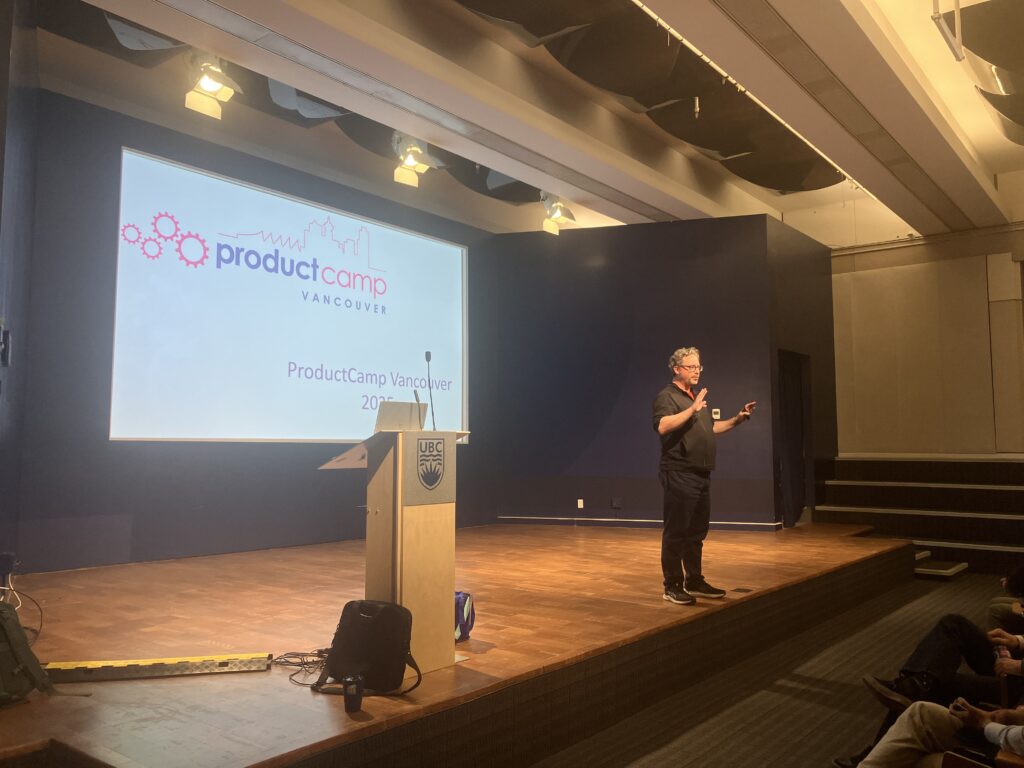
By Mack Adams
On April 25th in Vancouver, I had the privilege of attending Product Camp — now in it’s 15th year and the largest one worldwide (450+ participants). It was excellent and I look forward to going to next year’s edition.
There was a great mix of conversations with new people; learning from practitioners; and just an easy vibe to the whole event.
There were two major themes across the session — one was around the career, skills and role of Product Managers. And the second, to no one’s surprise, was All Things AI.

Product Manager Role
For this theme, I come at it with two hats. On the one hand, with Alluvial, we help digital delivery teams build better products. With Superbrothers, an indie video game studio, I act as Executive Producer for a team building a video game.
The PM role is still fairly new, somewhat undefined, comes from a range of backgrounds and looks very different in each context. So, it’s hard to pin down what a PM looks like given the range from a scrappy start-up to being part of a large enterprise product suite. But, beneath that, core competencies do persist, with things like hyper focus on value, innovation, managing complex stakeholders and being accountable for outcomes.
All Things AI
This was as pervasive as you’d expect. The level of uncertainty around “where this is all going” is immense and literally no one has the answer. That’s both comforting (I’m not alone) and disconcerting (this is a huge shift). There are so many layers to the AI equation – be it how it makes individuals more productive (doc gen, etc); can be designed into new products; or possibly enable new ways of doing product design.
A conversation I had multiple times was around how PMs are able to change their roles with AI. Summarized as the following: “Prototyping is the new wireframing.” So, instead of writing quick requirements and asking a UI/UX person to put together wireframes for review, the PM simply uses a tool like Bolt.new to build their own prototype and start collective feedback in minutes, instead of days.
Intersectionality
With my dual hat perspective on this, the big questioin that came to me was as follows: with the speed innovation around AI, it’s almost impossible to predict where that will go (and keep going). However, if we assume that most teams and orgs will be using AI more and more, what impact does that have on process, team design and organizational development.
As the Agile movement gathered momentum, many underlying technologies made the process models that much more effective — object oriented design, continuous integration/deployment and so on. And so, with AI, the process models and cycles will compress further; the types and roles of people involved with also change and the overall shape of organizations will also morph.
That’s the problem statement I’m most interested – what process, team models and org designs are needed to make the most of AI – and the Product Manager role sits right at the heart of that equation.
See you next year and thanks again to the organizers!
